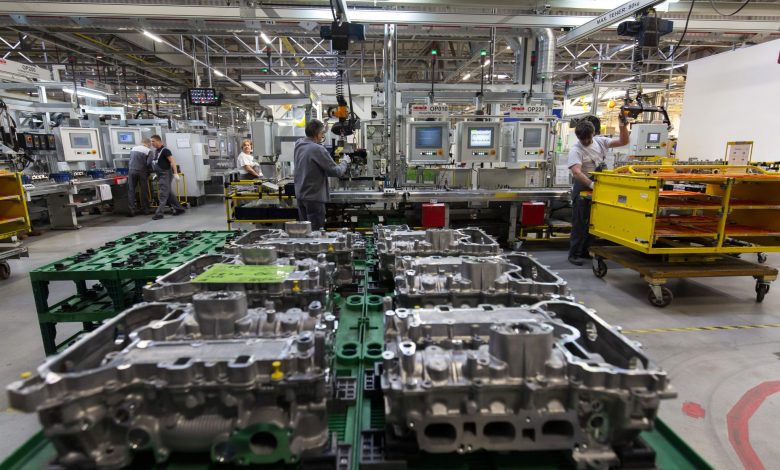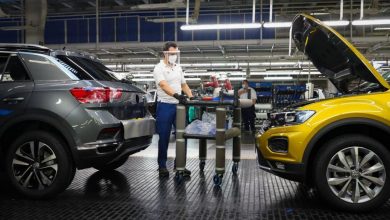
Hungary’s Economy Engine Automotive Industry to Pull the Brakes?
In recent years, Hungary has achieved strong economic growth. However, according to the latest statistics, there is a significant downturn in the production of several sectors, most prominently including the automotive industry. Given the huge weight of this area in Hungary’s economy, how the negative global trends affect the country’s performance is an important question.
Hungary is one of the most exposed economies to the automotive industry. The sector has become a critical engine of industrial production in Hungary since 2011, and in the last nearly two decades, companies in the industry have managed to increase their output significantly almost every year, mainly due to lasting export demand. If the export market were to fall behind, it would hugely impact the economy and drastically degrade its performance.
In their 2018 industry report, the Central Statistical Office (KSH) revealed that the automotive industry’s share of the manufacturing output was over 28% in 2018, although their output increased only slightly, by 1.5% in 2017 and then practically stagnated in 2018.
Worsening data
KSH’s new data released on Thursday also shows a significant drop in the output of Hungary’s industrial sector, mainly due to the “significant fall” in car manufacturing. Although GDP continues to grow, the output decline could have some lasting effect on its rate.
Car production suffered a significant hit compared to the results of the previous December, following a 4.0% increase in November, while production increased 11.5% in the first eleven months, according to KSH.
Regarding the new data, Erste Bank senior analyst Orsolya Nyeste noted that it is unclear what to expect for the next couple of months. PMI indices augur a positive correction in the coming months, but a decline in German industrial orders could also be seen as a sign of caution.
Although the Hungarian industry has so far proved surprisingly resilient to the slowdown in the European and German economies, it is possible that the poor data of December was the first sign that this tendency will stop in the coming future, the expert said.
Hungary, heaven for car manufacturers
International car manufacturers (mainly Germans) see a great expansion opportunity in Hungary due to a combination of relatively low wages, good infrastructure, and substantial public subsidies offered by the government.
However, economists have long been ringing the alarm bell that Hungary could easily find itself in trouble. If demand for automobiles drops as a result of a major international financial crunch, the national economy could seriously suffer the consequences.
Meanwhile, news site Magyar Hang reports that many automotive companies in Hungary (e.g. Mercedes, Audi) have started “passive layoffs.” This means that the companies do not extend their fixed-term employment contracts, nor do they replace leaving employees due to natural fluctuations or retirement with new ones. Employment of temporary workers is also reduced, while some of the human work is replaced with technology.
The paper recalls that the trend can be observed worldwide, as according to Bloomberg, 80-100 thousand jobs in the automotive industry will disappear globally in the coming years.
Also, the German Association of the Automotive Industry (VDA) estimates that the spreading popularity of self-driving and electric cars could lead to the elimination of some 70,000 automotive jobs in the next decade.
The government is not concerned
The government, however, doesn’t seem to share the concerns over the automotive industry’s exposure towards global recession trends.
Gábor Gion, the State Secretary at the Ministry of Finance, talked about his standpoint in detail regarding the issue at last year’s Friends of Hungary Foundation conference.
The politician did not agree with the criticism that the Hungarian economy relies too much on the automotive industry and is thus more vulnerable in the case of an economic crisis. He argued that the automotive companies located in Hungary mainly manufacture high category cars, the demand for which was not diminished by the 2008 crisis either.
Global prospects
In response to the international economic setback and the situation heading towards recession, the Hungarian government announced its stabilizing “economy protection action plan” last June, followed by a second plan in December.
At the same time, the German and European economic indicators have moved from their lowpoint and progress has also been made in the US-China trade conflict, which was battering the German car industry last year. This could easily stabilize the somewhat weakening performance of the car manufacturers.
But the future of the global automotive industry and how the Hungarian sector will be able to adapt to it, in the long run, is yet to be seen.
Font: Hungary Today





